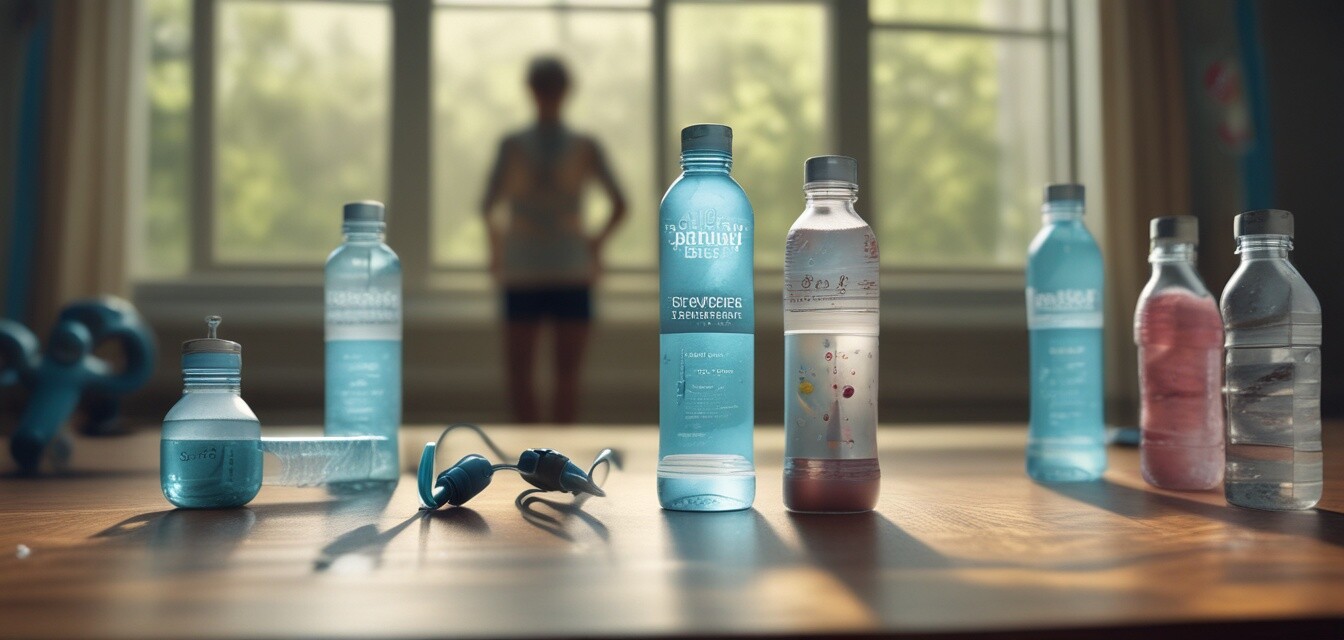
Signs of Dehydration: What Seniors Should Know During Workouts
Key Takeaways
- Recognizing early signs of dehydration is crucial for seniors during workouts.
- Staying hydrated can significantly enhance performance and safety during exercises.
- Implementing regular hydration breaks and monitoring fluid intake is essential.
Staying hydrated is vital for overall well-being, particularly for seniors engaging in strength training. As we age, our bodies may not signal dehydration as effectively, making it crucial to recognize the signs and take preventive measures. In this article, we will explore the signs of dehydration, why it matters during workouts, and how seniors can maintain proper hydration levels.
Understanding Dehydration
Dehydration occurs when the body loses more fluids than it takes in. This imbalance can impede physical performance and affect overall health, especially in seniors, who may have different hydration needs compared to younger adults. Here's a simple overview of dehydration:
| Type of Dehydration | Description |
|---|---|
| Acute Dehydration | Happens suddenly, often due to intense exercise without adequate fluid intake. |
| Chronic Dehydration | Develops over time and can result from under-hydration habits. |
Signs of Dehydration in Seniors During Workouts
Recognizing the signs of dehydration can help seniors take action before severe issues arise. Here are some common signs to watch for during workouts:
- Thirst: A primary indicator of the body's need for fluids.
- Dark Yellow Urine: Indicates concentrated urine, which signifies dehydration.
- Dizziness and Confusion: Physical confusion can occur with dehydration, affecting balance.
- Dry Mouth and Skin: Lack of moisture in the mouth and reduced skin elasticity.
- Fatigue: Feeling unusually tired during or after exercise.
- Headaches: Often a sign of insufficient hydration levels.
Importance of Staying Hydrated
Proper hydration enhances physical performance, energy levels, and recovery post-exercise. For seniors, staying hydrated can help maintain muscle function and joint lubrication, reducing the risk of injury and improving overall workout efficacy.
Tips for Staying Hydrated
- Drink Water Regularly: Sip water throughout the day, not just during workouts.
- Include Hydrating Foods: Consume fruits and vegetables with high water content such as cucumbers and watermelon.
- Set Reminders: Use phone alarms or apps to remind you to drink water.
- Monitor Fluid Intake: Aim for at least 8-10 cups of fluid daily, adjusting according to activity level.
- Use Electrolyte Drinks: Consider drinks with electrolytes during extended workouts in heat.
How to Hydrate Before, During, and After Workouts
Maintaining hydration levels involves a focus on fluid intake around workout schedules:
| Time | Hydration Tips |
|---|---|
| Before Workout | Drink at least 8-16 ounces of water 1-2 hours before exercising. |
| During Workout | Sip water every 15-20 minutes, especially if the session lasts more than 30 minutes. |
| After Workout | Rehydrate with water or an electrolyte drink to replenish lost fluids. |
Common Mistakes to Avoid
Seniors should be aware of common hydration mistakes that can lead to dehydration:
- Ignoring thirst signals, which can lead to more severe dehydration.
- Only drinking water during workout sessions without regular fluid intake throughout the day.
- Relying solely on thirst to gauge hydration levels.
Listen to Your Body
It's essential for seniors to be mindful of their body's signals. If you experience any signs of dehydration, take a break, rest, and hydrate immediately. Practicing mindfulness and recognizing early warning signs can make all the difference in maintaining health and safety during workouts.
Conclusion
Staying hydrated should be a priority for seniors engaging in strength training to ensure a safe and effective workout experience. By understanding the signs of dehydration and implementing strategies to stay hydrated, seniors can enhance their fitness journey and overall health.
Pros
- Improved performance during workouts.
- Reduced risk of injuries due to better joint lubrication.
- Enhanced recovery time post-exercise.
Cons
- Neglecting hydration can lead to serious health issues.
- Over-hydrating can lead to other health complications, although rare.
For more information on how to exercise safely, check out our safety tips category or read more on the best hydrating equipment.